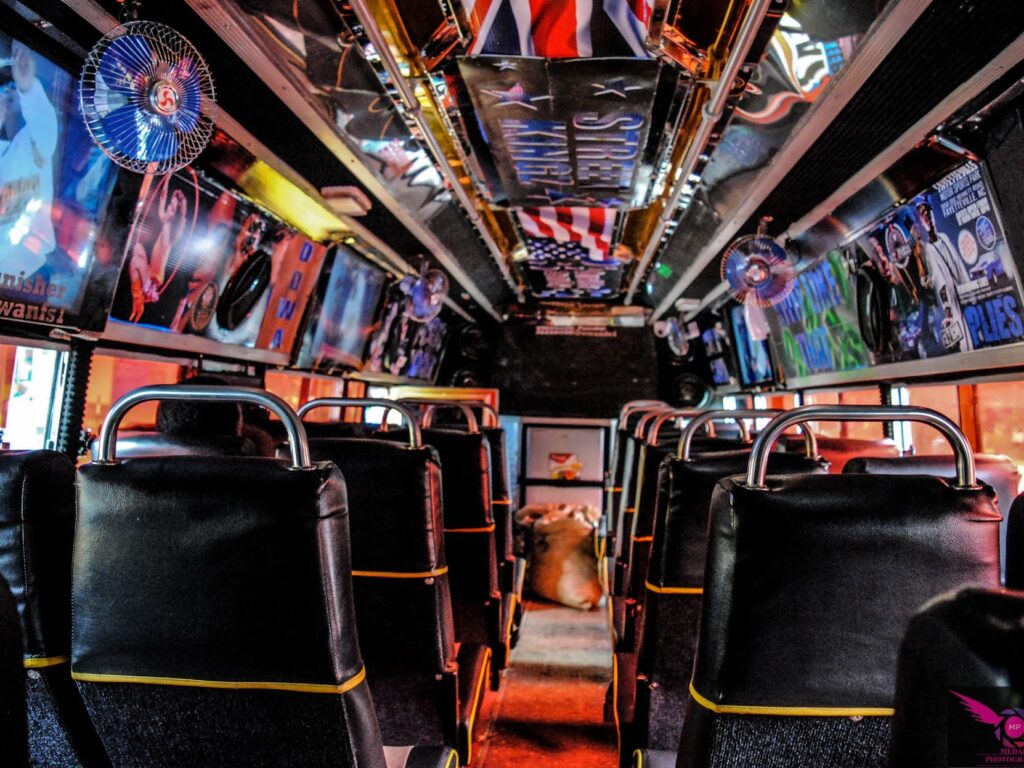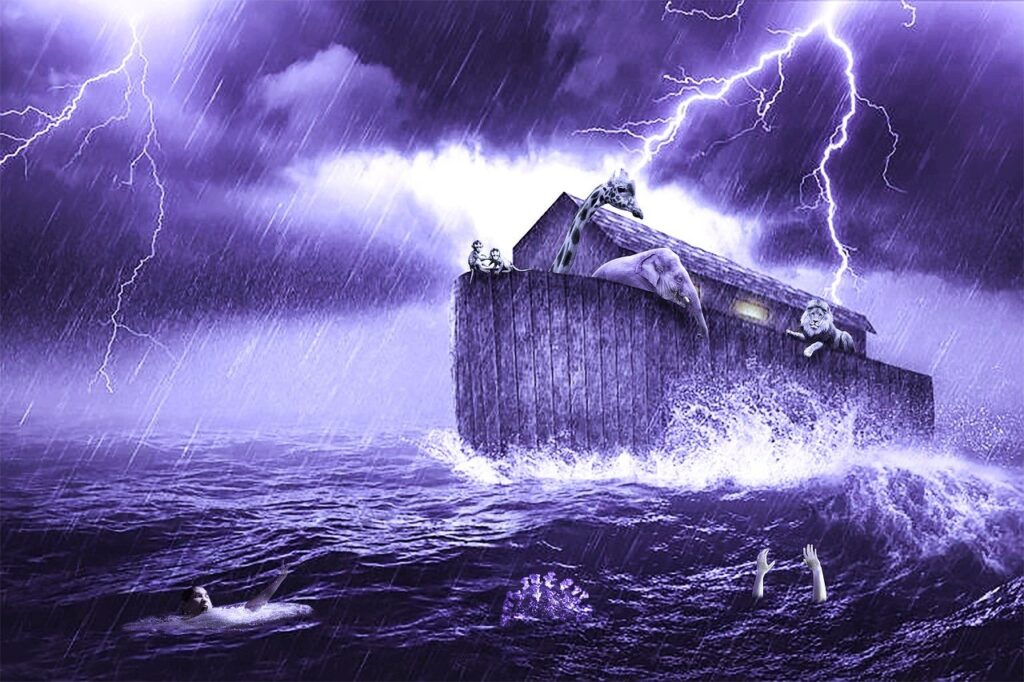With an eye for crookedness, a mind distraught by ill will, and a heart inclined to latch onto safety; half a dozen people stand beside the road weighing options: to board or decline. A new arrival hoots and halts into the stage as its door slides open. Barely an eye’s wink later, some rowdy tout rushes in with an itchy fist and bangs it onto the matatu, “Bam bam bam!” A welcoming feat of fists.
The conductor leaps out and walks to the calm, unmoved passengers hailing, “Thika Thika Thika.” He approaches with confidence, and might even try persuading with a little touching or soft pushing.
All the while, in the back of their minds, the passengers have been running a fast paced reconnaissance to make out his (and the matatu’s) demeanor. Every hint is taken up for review: gait, facial cues, hand gestures, tone, choice of words, pace, manners.
There’s a rhetoric around matatu conductors – that some are cold, rude and often unfair. No one wants to ruffle feathers with them. So you try to avoid boarding a matatu when you can.

But even with caution, these are formidable men, built to squeeze cunningly through small crevices in the great firewall of mistrust. They are known to win hearts of the worst and best alike: psychos, narcissists, egomaniacs, or the sensible, the good, and gentle at heart; all at the snap of a finger.
The only safeguard is a taste of the malice in their profession. These men are an antidote unto themselves. Once bitten, not for one moment would a passenger consider boarding their 14-seaters.
The stare of dismissal
The unresolved passengers by the road have bite marks that won’t heal, and are shy of dicing with the same jaws again.
If the demeanor comes out as ‘no different’, ‘no better’ or ‘same old’, no amount of persuasion will move them an inch. They won’t even mutter a word – because there are so many ways a simple convo could end with boarding, and far too less ways to avoid boarding after the slightest dialogue. Anything you say can easily be used to get you on board. You’re better off quiet as a mouse.
With a frown on the face, the passengers shake their heads and stare away into nothingness. The stare checkmates like a wrench thrust into gears – it says go away, we’re not bending to your will, conductor! There’s no better way to dismiss.
The conductor turns around, ego unscarred, walks back to the matatu and flags it off with a pat on the roof. As it speeds off, he stands on the doorstep and calls out for passengers again, “Thika, Thika.” No one seems to care. So he leans back in, shuts the door and voila, out of sight.

The pattern repeats, each time a matatu leaving disgruntled. Soon enough, a nganya (bus) familiarly screeches brakes and pulls over into the stage. Nganyas hoot less often – they’re big enough to be noticed, plus everyone is looking to board one. Oh, and no kidding, this particular nganya is from my preferred brand!
What’s the bother?
Needless to say, I rush to board, and settle on an aisle seat. Now, off we go, but unknown to me, this isn’t my usual trip. It’s a two-tier – a guilt trip awaits.

From the distant horizon of the mind’s expanse of thoughts, a little fuss of a cloud begins to gain mass. Steadily, it builds up and clouds over my mind. Something’s the bother. The nganya sure moves and feels like a nganya, but the air doesn’t smell right.
What’s wrong? Pages of memory begin to flip back, ‘flip flap flip flap’, as probing goes on and on. Eventually, on this certain page showing the stare of dismissal, it comes to a still. So this is the bother – my choice of nganya over matatu.
Now the questions come raining down, “Why couldn’t I dare to believe the best of the conductor? Is there a chance there was good faith in one of those conductors? Why couldn’t I dare to believe the matatu was equally capable as the nganya?”
Some part of me wanted to believe in good faith, but the other was sure most good faith is gone bad, and if it isn’t yet, there’s no chance I could find it in a matatu conductor.
Second leg, driven to the brink
My journey wasn’t over yet. On this second leg, I dared to believe. I gave the benefit of the doubt. There was no attempt to weigh demeanors or sniff out bad faith. I just walked up to a matatu and wilfully boarded.
Then all hell broke loose. Name all counts of malice – intentional delays running upto hours, overloading, rudeness, and worse of all, fuel ran out. It couldn’t get any worse, I just missed an event.

At this moment, I was driven to the brink, and all I could think of was the great flood of Noah’s time, and Thanos’s plan to wipe out half of Earth’s population. For the first time, it felt justified. Humanity felt debased.
Now I had a bone to pick with the entire human race.
Good faith gone bad
Does anyone act on good faith anymore? Is anyone mindful of anyone but themselves? Is everyone self-seeking, self-preserving, self-catering, and self-righteous? You ask me, I’d say we have more of these than ever before.
There’s a little good faith lost every day. Every unit lost leaves a void. The void is growing, and ever filling up with bad faith and mistrust. And now, actors of bad faith are popping up all over. These are the relentless self-seekers.
The planet is warming up, but humanity is freezing colder and loveless by the day. So what now, do we stop believing the best? For sure, it’s tempting and seemingly safe to always assume the worst in people. That way, you can evade hurt.
But there’s one problem: sometimes, we turn and become those monsters from whom we fight so passionately to safeguard ourselves. Hurt people turn and hurt other people. Broken people turn and break other people.

This may seem dumb, but believing the best of people and loving them is not that bad in comparison.
I remain acutely aware that to believe, and to see only the best in people is like holding on to a pipe dream, because no one is perfectly capable of good.
Well, some are, to a humanly acceptable standard. For those few, and for the rest, I want to believe the best in people. I want to love people as humanly possible as I can.
As good faith goes bad, I want to be the reason someone still believes that good faith exists.
Cover image by rawpixel.com on Freepik

